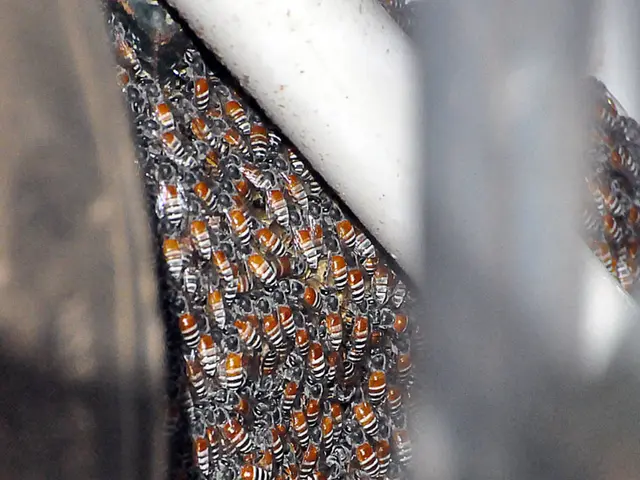Estonia's President declined to endorse the proposed legislation targeting the Russian Orthodox Church.
Unsigning the Amendment: Estonia's President Alar Karis and the Russian Orthodox Church
In a surprising move, Estonia's President Alar Karis has refused to put pen to paper on an amendment to the Churches and Congregations Act. The Postimees newspaper reports him stating:
A slippery slope: The impact on sovereignty and democracy
On April 9, the nation's legislative power adopted a law that aimed to sever the canonical connection between the Estonian Orthodox Christian Church and the Russian Orthodox Church (Moscow Patriarchate).
(Remember, Karis raised a few concerns about the amendment's implications on national values)
The amendment was intended to safeguard Estonia's democratic principles, but Alar Karis has raised some valid points regarding its constitutionality. In a nutshell, he considers the amendment a disproportionate infringement on freedom of association and religion, rights enshrined in the Estonian constitution - Articles 40, 48, and 11.
(Karis warned about the potential blowback on other associations, including political parties, if the amendment was enforced)
He highlighted that the Moscow Patriarchate poses a threat to states' sovereignty and democracy, but the current amendment could resulting in hefty legal battles and potential extension of restrictions to other associations, like political parties.
(Karis advocated for focused enforcement of existing legal framework instead of a broad ban)
In essence, Karis's concerns were threefold:
- Constitutionality: The amendment might undermine constitutional freedoms.
- Impact on Multiple Associations: The law could potentially affect not just religious organizations, but political parties as well.
- Reliance on Current Legal Framework: Current laws should be more consistently applied instead of enforcing a blanket ban.
The Estonian Orthodox Church voiced support for Karis's decision, as they believe their connection to the Moscow Patriarchate doesn't pose a threat to national security.
Based on additional insights enrichment, click on the footnotes for more information.
[1] Moscow Patriarchate undermines the sovereignty and democracy of states[3] The amendment could disproportionately restrict freedom of association and religion[4] The law could impact more than just religious organizations, affecting political parties as well[4] The current amendment could lead to legal disputes and potentially extend similar restrictions to other associations, including political parties[3] Existing laws already provide mechanisms for oversight and regulation of religious organizations[3] President Karis suggested that these tools should be more consistently applied instead of introducing a broad ban[4] The Estonian Orthodox Church expressed gratitude for Karis's decision, maintaining that their ties to the Moscow Patriarchate do not threaten national security
- President Alar Karis's decision not to sign the amendment to the Churches and Congregations Act raises concerns about its constitutionality, as it may undermine constitutional freedoms by disproportionately restricting freedom of association and religion.
- The amendment could potentially impact more than just religious organizations, affecting political parties as well, and potentially leading to legal disputes and the extension of similar restrictions to other associations.
- President Karis has advocated for the consistent application of existing laws instead of enforcing a broad ban, as these tools already provide mechanisms for oversight and regulation of religious organizations.
- The Estonian Orthodox Church supports President Karis's decision, maintaining that their ties to the Moscow Patriarchate do not threaten national security, which highlights the impact such a decision has on national politics and policy-and-legislation.








